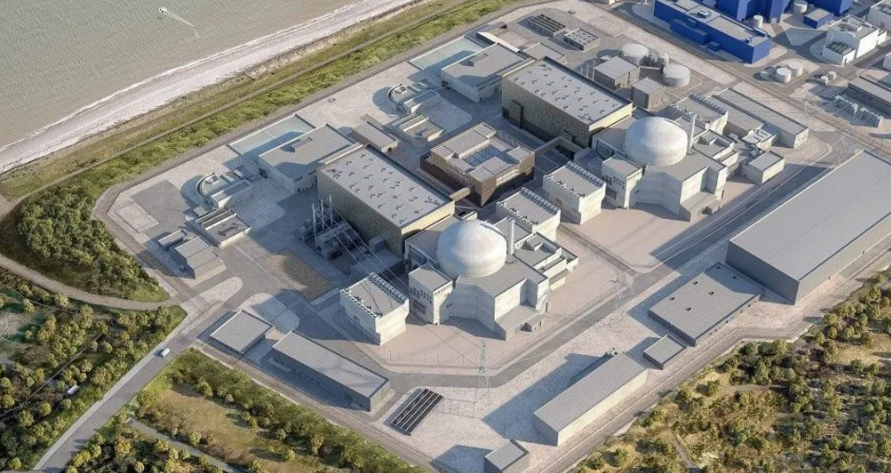The UK government has unveiled its most ambitious nuclear power expansion in decades, committing £14.2 billion to the construction of Sizewell C in Suffolk and confirming that Rolls-Royce will lead the development of the country’s first small modular reactors (SMRs).
The announcement marks a major step toward the government’s goal of securing clean, reliable energy as part of its long-term net-zero strategy. Sizewell C, to be built beside the existing Sizewell B plant, is expected to provide power for six million homes and operate for up to 60 years once completed in the mid-2030s.
The new power station will be developed by French energy giant EDF. While the £14.2 billion allocation covers the next four years, total construction costs are projected to exceed £20 billion, with some estimates suggesting it could rise to £40 billion — a figure EDF disputes. Prime Minister Sir Keir Starmer has insisted the project will not receive “a blank cheque,” highlighting the need for accountability.
The Sizewell C project is expected to create 10,000 jobs during construction and thousands more across supply chains, contributing to both regional growth and the UK’s energy security.
In parallel, the government has confirmed Rolls-Royce will spearhead the UK’s SMR programme. SMRs function like traditional nuclear reactors but on a smaller scale, allowing for modular construction and potentially faster, more flexible deployment. Though cheaper in theory, early SMRs are likely to be costly until mass production reduces costs.
Backed by £2.5 billion in government investment through the latest Spending Review, the SMR initiative is expected to create up to 3,000 skilled jobs and supply electricity to around three million homes. The location for the first SMR site will be announced by the end of 2025, with grid connection targeted for the mid-2030s.
Sites near airports, military installations, flood-prone areas, or nature-sensitive zones will be excluded from consideration. Great British Nuclear, the body overseeing delivery, will lead the site selection process.
The nuclear push comes as existing UK nuclear capacity faces decline, with eight of the country’s nine reactors set to close by 2030. Nuclear currently generates around 14% of the UK’s electricity and is viewed as vital for providing consistent “baseload” power to complement intermittent renewables like wind and solar.
While concerns remain over nuclear waste management and costs, government officials insist the expansion is necessary to meet future energy needs and climate targets. Globally, only China and Russia have operational SMRs, though demand is rising, especially from data-heavy industries like cloud computing.
The UK, alongside 30 other countries, pledged in late 2024 to triple nuclear capacity by 2050. Tuesday’s announcement signals the country’s commitment to fulfilling that promise and securing a low-carbon energy future.


